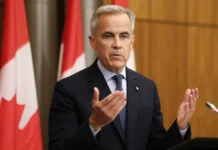Paris, 3 October 2022 (TDI): The International Energy Agency (IEA) has issued the energy report for quarter 4, 2022. The energy includes gas, oil, coal supply and demand, electricity markets, and energy technologies.
The world is facing an energy crisis and IEA has suggested policies for its member and association countries to enhance affordability, reliability, and sustainability.
In this report, the IEA noted that 2023 will be a tight year in the energy and gas market.
As the 0.8% global consumption will be dropped as Russian supplies are restricted. European market cuts its uses because of high prices and Asia pacific has a static demand. It will grow up by 0.4% in 2023.
In Europe, the market for natural gas has contracted up to 10 percent according to the IEA report.
The IEA’s director of energy markets and security, Keisuke Sadamori said the Russia-Ukraine war has shaken the energy markets of the world.
Russia dropping its supplies of natural gas to the European markets harms the business community and consumer class as well. It does not only cause significant harm to Europe but to Asia and the emerging world as well.
The invasion of Russia on Ukraine is not the only reason for gas shortages, but the Nord Stream 1 shutdown and recent leaks in the pipeline discovered, are also reasons.
Russia has also threatened the sanctions and shutdown of the Ukrainian energy company Naftogaz. This is the only gas supply to Europe which will further create uncertainty in the energy markets. The supplies will be further contracted.
The IEA said Europe will find its way for natural gas and this year Europe will import 60 billion cubic meters of LNG from Norway. This will also decrease imports from Asia.
About IEA
The International Energy Agency (IEA) is at the core of the global energy discourse, offering reliable analysis, statistics, policy suggestions, and workable solutions to assist governments in delivering safe and reliable energy for all.
The IEA was established in 1974 to aid in the coordination of a collective reaction to large interruptions in the oil supply. While oil stability is a critical component of its work, the IEA has changed and grown tremendously since its inception.
The IEA advocates policies that improve energy dependability, cost, and sustainability using an all-fuels, all-technology approach. It looks at renewables, oil, gas, and coal supply and demand, energy efficiency, sustainable energy technology, electrical infrastructure and markets, energy access, demand-side management, and a lot more.
Also read: EU accuses Russia of energy weaponization
Studied Economics at Pakistan Institute of Development Economics.








